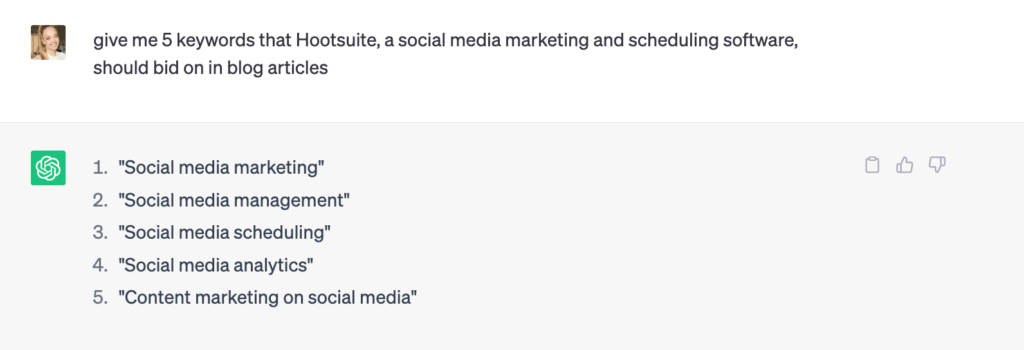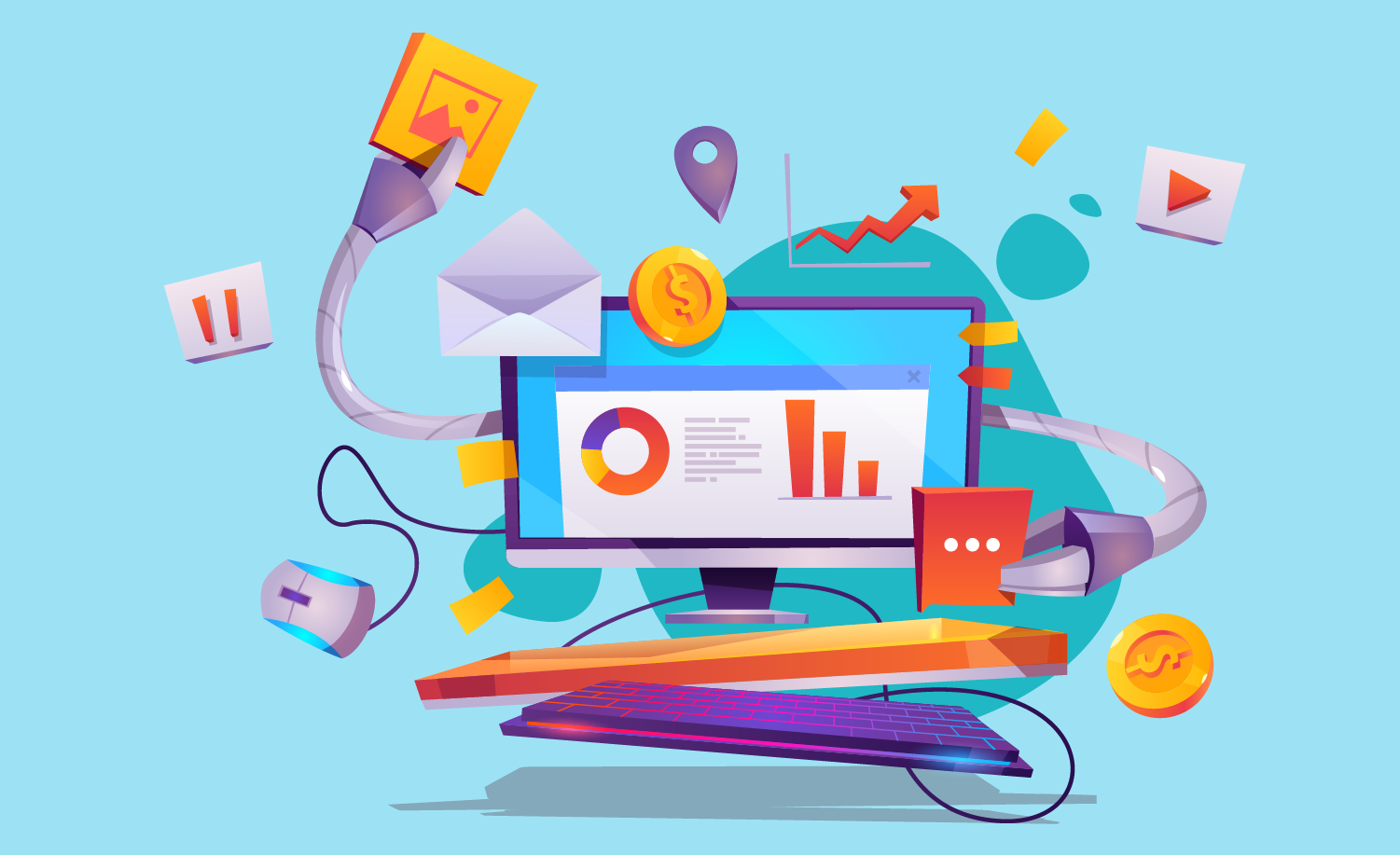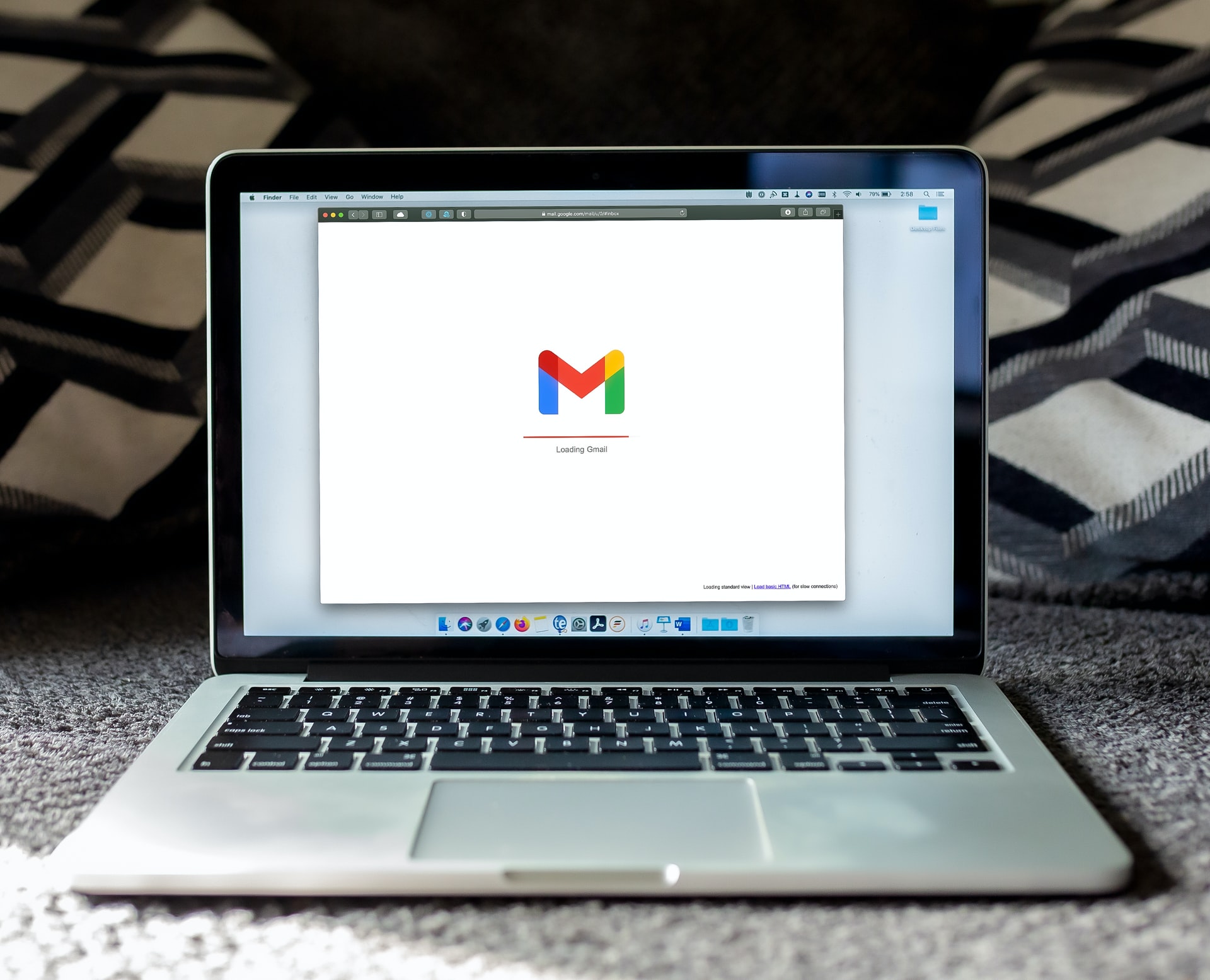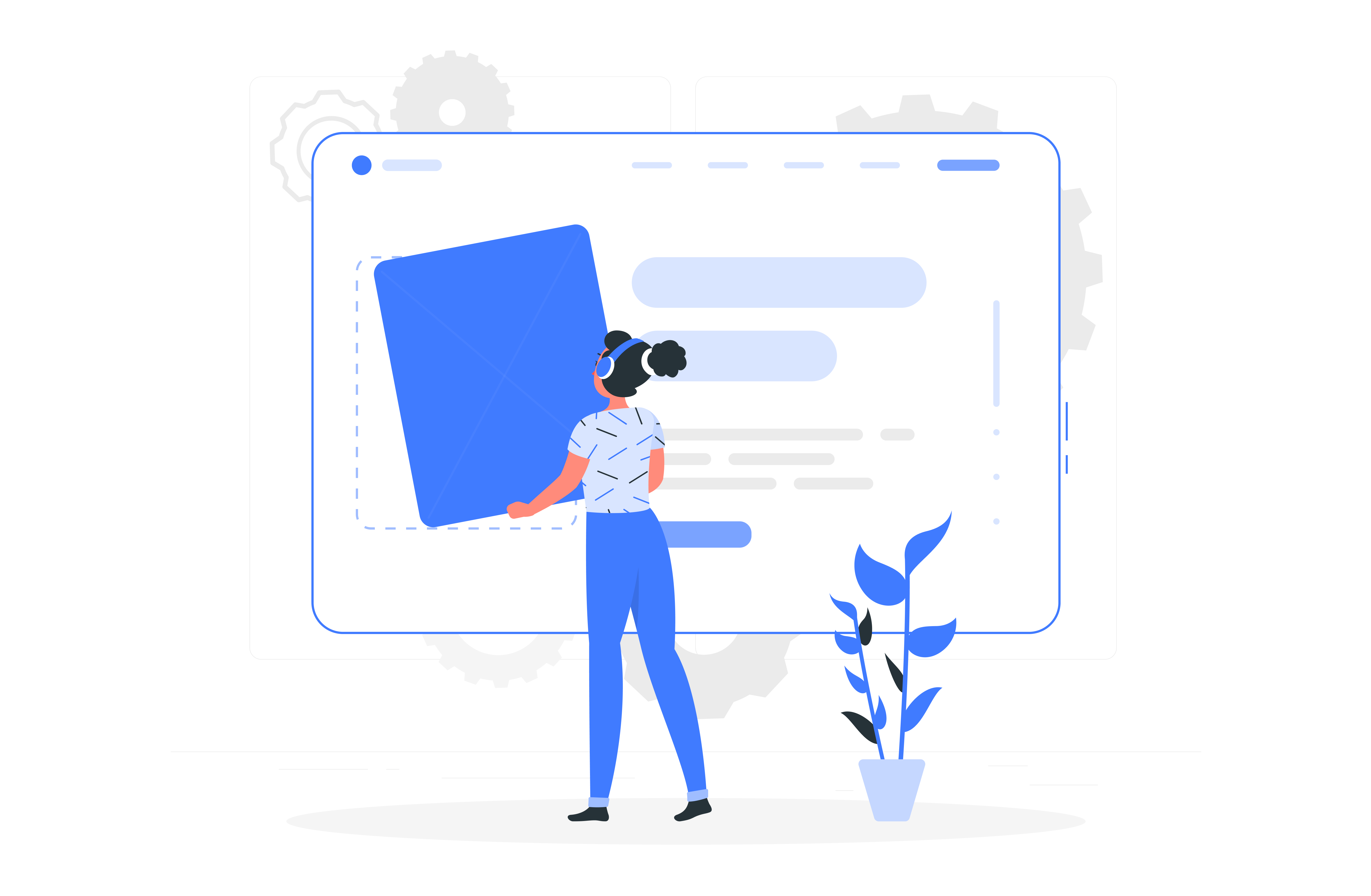The race to build high-quality content has never been faster – and we don’t see this ending any time soon. With AI-generated content booming, marketers wonder how to incorporate it into their daily lives. When talking about AI-generated content, SEO is a hot topic. Is it good for SEO? Is it bad? Stick around to find out how to and how not to use AI for SEO. First, let’s go over what AI-generated content even means for the average marketer.
What is AI-Generated Content?
According to Hubspot, AI-generated content is defined as “machine-made text – such as blog articles, descriptions, and other marketing collateral – based on human search queries,”. Essentially, this means that any form of written content that you use on your website, can be generated through various AI tools. If done right, AI-generated content can be a great addition to your marketing wheelhouse. This is because it can save you time, money, and give you different perspectives on what you’re writing about.

How Google Is Rewarding High-Quality Content, However it is Produced
In February of 2023, Google released an article regarding AI-generated content and if it will punish users that are using it. In the article, Google remarks that they aim to “reward original, high-quality content,”. Their algorithm looks at EEAT, which means expertise, experience, authoritativeness, and trustworthiness. This essentially means that they focus on high-quality content, rather than how the content is produced. So, it is possible to pair AI with human-written content to create a high-quality resource for searchers. Google has always and will continue to reward content that provides insights, answers questions, and is trustworthy. Now that you know where AI stands in regard to Google, let’s dive into how you can utilize AI for SEO.
How to Use AI for SEO
Now what we’ve all been waiting for, is how to use AI for SEO. Here are a handful of helpful tips and tricks for creating high-value and high-quality content with AI.
Writing Meta Data
Artificial intelligence tools, like Hubspot’s new AI tool, can pull from pre-existing information from search engines. Then, it can create content from search queries. It bases information on different keywords, phrases, and various topics. This can help you find ideas that are trending and may rank better. When using a tool like this, it’s always a good idea to double-check keywords using Google Keyword Planner or SEMRush. If you don’t want to pay for a tool like Hubspot, you can also use free resources like ChatGPT. However, responses might not be as high-quality and relevant.
Writing Blog Content
One of the most popular ways marketers are using AI is to write blog content and other long-form content. This is because AI can have a much faster turnaround time than hand-written content, and helps with that writer’s block! If you want to write long-form content, you’ll have to be very specific about what you want to include. Like how many words, a title, keyword, who your target audience is, and other guidelines. The more specific you are, the higher quality and more customized content you’ll get. When the software is finished, you’ll need to comb through it, thoroughly. Ensure your brand voice, branding, examples, and stats are all there. It can be best to use the AI version as a guideline or brainstorm. Then, put your spin on the content yourself.
Aiding in Research & Brainstorming
We all know that it can be tricky to get the ball rolling on content creation. Whether you’re trying to find the perfect keyword to bid on, or a new blog article to write. In this case, AI can be a huge help and save you a ton of time. One example that I like to do is gather a list of keywords that are relevant to your industry, that can be used in Google Ads, landing pages, blog articles, and more. Below is an example of a handful of keywords that I’m sure Hootsuite is using in their marketing efforts, that ChatGPT has provided. If you’re looking for more ways that you can use ChatGPT for marketing, take a look at this article.

How to Not Use AI for SEO
Now that you know some of the best ways to use AI-generated content for SEO, we need to go through some of the not-so-best ways.
No Prior Research
As I touched on earlier, AI tools can only generate high-quality content if you give it a high-quality prompt. This means that you might have to do some research before you can ask AI for help. In addition, doing research can help you build on what AI provides, which will help you come up with a more custom piece of content. Not to mention, AI is not always right.
No Personalization
With AI-generated content, there is very little personalization. This means that multiple people can get the same response. And, in theory, this could mean that there are multiple pieces of content out there that are the same, if it’s not personalized. To avoid this, ensure you thoroughly read and add your brand’s voice and personality into each piece of content you publish. Some AI tools, like JasperAI, can analyze previous pieces of content to get an understanding of your brand voice, but it’s always recommended to check.
Copy & Paste
AI is not perfect. Other than lack of personalization, copying and pasting content can result in incorrect information, not following SEO best practices, and other things that you should consider before hitting publish. In my research, I have seen AI-generated meta information have poor ranking keywords and page titles and descriptions that are too long. Again, double-checking your content is the best way to avoid this.
No Proofreading and Fact-Checking
I’m sure you get the point by now, but proofreading and fact-checking are absolutely essential when it comes to AI-generated content and search engine optimization. A great example of the limitations of AI is that events that happened after September 2021 may not be available. This is because most AI tools, at this time, can only go back so far. Because of this, if you are writing content, you’ll need to check to make sure all of the information is correct and up to date with today’s information.

Other Considerations
Now that you know the do’s and don’ts of using AI-generated content and search engine optimization, let’s go over a few other considerations that you need to understand before you get started.
Duplicate Content
One of the major risks associated with AI-generated content for SEO is the potential of duplicate content. Whether someone else has copied the content directly from AI, or AI has taken an exact copy from another source, duplicated content is always a possibility. Search engines penalize websites that publish duplicate content, as it is not unique or helpful to searchers. When writing with AI, ensure that it is unique and original. AI is a helpful tool, not a replacement for your writing skills.
Lack of Human Touch
One common complaint that we have seen is that AI-generated content can lack the human touch and emotion that resonates with your audience. While AI can handle technical aspects, it may struggle to develop content that evokes emotions, entices your audience, and ultimately resonates with your audience. This can result in lackluster content that is rather boring.
Ethical Considerations
The final aspect that you should consider is ethics. AI-generated content can raise ethical concerns related to plagiarism, copyright infringement, and even data privacy. This is another reason why you need to put your own spin on AI-generated content and thoroughly read through the content before hitting publish.

Final Words
AI-generated content offers a lot of benefits in regard to SEO, but it’s not as easy as copying and pasting. By leveraging AI as a collaborative tool, you can boost productivity, get through writer’s block, and get a new perspective on certain topics. It can be tricky to figure out the right balance between AI-generated content and human, but if done right, you can publish high-quality and search engine optimized content that is ready to engage your audience.
 Identify
Identify Personalize
Personalize Benchmark
Benchmark Agencies
Agencies Integrations
Integrations Case Studies
Case Studies Use Cases
Use Cases Blog
Blog Resources
Resources



















